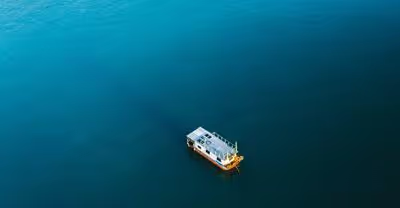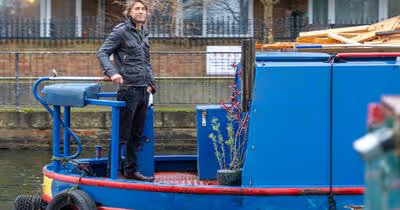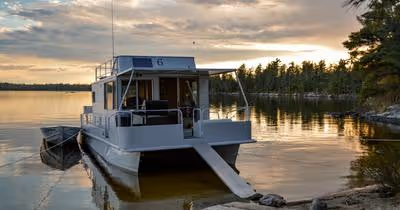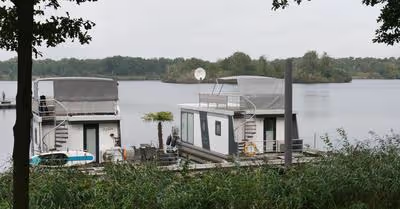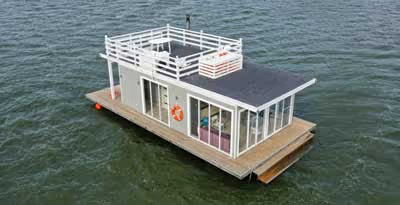
Key Takeaways
- Embrace a minimalist lifestyle and prioritize essential items for limited space.
- Master essential boating skills and safety protocols for smooth sailing.
- Daily life aboard involves regular boat maintenance and community interactions.
Curious about living on the ocean? Cast off doubts! Our beginner's guide unveils the secrets to thriving aboard. Your aquatic journey awaits!
Living on the ocean in a boat requires careful planning, adept skills in navigating and maintaining your vessel, and adaptability to the ever-changing conditions at sea. These are essential tips that will help you set sail with confidence.
As an expert in the boating and sailing world, I understand the complexities and considerations that come with this alternative way of living. Having lived aboard, I provide reliable, up-to-date information and guidance to help you make informed decisions about making a move to ocean living. If you're curious about the logistics or critical factors to consider, this guide is your essential resource for creating a successful life aboard a boat on the open ocean.
Living on the Ocean in a Boat
Living on the ocean in a boat is an alternative lifestyle that thrills many adventure-seekers and offers a unique way of experiencing the world. Whether you're enticed by the idea of waking up to breathtaking ocean views or exploring new shores, embracing boat life is a challenging yet rewarding endeavor.
We’ll explore the basics of living aboard, key tips for a smooth transition, and a glimpse into the day-to-day experiences of liveaboards.
Living aboard a boat requires adapting to a simpler way of life, as you'll need to downsize your belongings, learn essential boat maintenance skills, and make clever use of minimal space. An important starting point entails finding the right boat that caters to your needs, space requirements, and budget.
Once you've secured your vessel, it's crucial to outfit it for comfortable living and set up systems for easy navigation and safety.
Also, establishing a strong foundation of knowledge in boat maintenance, navigation techniques, and dealing with common challenges is paramount for a successful life at sea.
Connecting with fellow liveaboards can be of great benefit, as they can offer advice, companionship, and a sense of community. Many have shared their experiences online, providing valuable insights for aspiring seafarers to learn from and apply to their journeys.
Managing Costs
Living on the ocean in a boat can be a dream come true for many, but it's essential to know the costs involved and how to manage them. We'll explore ways to save money, the maintenance cost, and liveaboard slip fees to help you make an informed decision before embarking on this unique lifestyle.
Saving Money
Living on a boat can be a cost-effective alternative to living on land. Property taxes are generally not applicable, and insurance rates can be lower than those for a house. To save even more, consider purchasing a used boat which will have a significantly lower cost than a new one.
Furthermore, adopting a minimalist lifestyle by reducing possessions and being mindful of utility consumption (e.g., water, electricity) will help you save money in the long run.
Maintenance Costs
Just like any home, boats require regular maintenance to stay functioning and safe. You can expect to spend around 15 to 20 percent of the value of your boat on operating expenses each year.
This includes engine maintenance, hull cleaning, and replacement of worn or damaged marine parts. To keep maintenance costs low, learn essential maintenance skills, perform regular inspections, and promptly address any issues you discover.
Slip Fees
Slip fees are the costs you'll incur for docking your own boat in most marinas. These fees can vary depending on the marina's location, amenities, and the size of your boat. To reduce liveaboard slip fees, you can look for a marina with fewer amenities, as they tend to be more affordable.
Also, consider marinas located further from city centers or popular tourist destinations, as they usually have lower prices. Research marina prices in your desired area and plan your budget accordingly.
Boat Types and Selection
Living on the ocean in a boat can be an adventurous and fulfilling lifestyle choice. As a beginner, selecting the right vessel is crucial for your comfort, safety, and overall experience.
Note that the best boat for living aboard ultimately depends on your personal needs, preferences, and budget. Below are the common types of vessels suitable for living aboard.
Small Sailboat
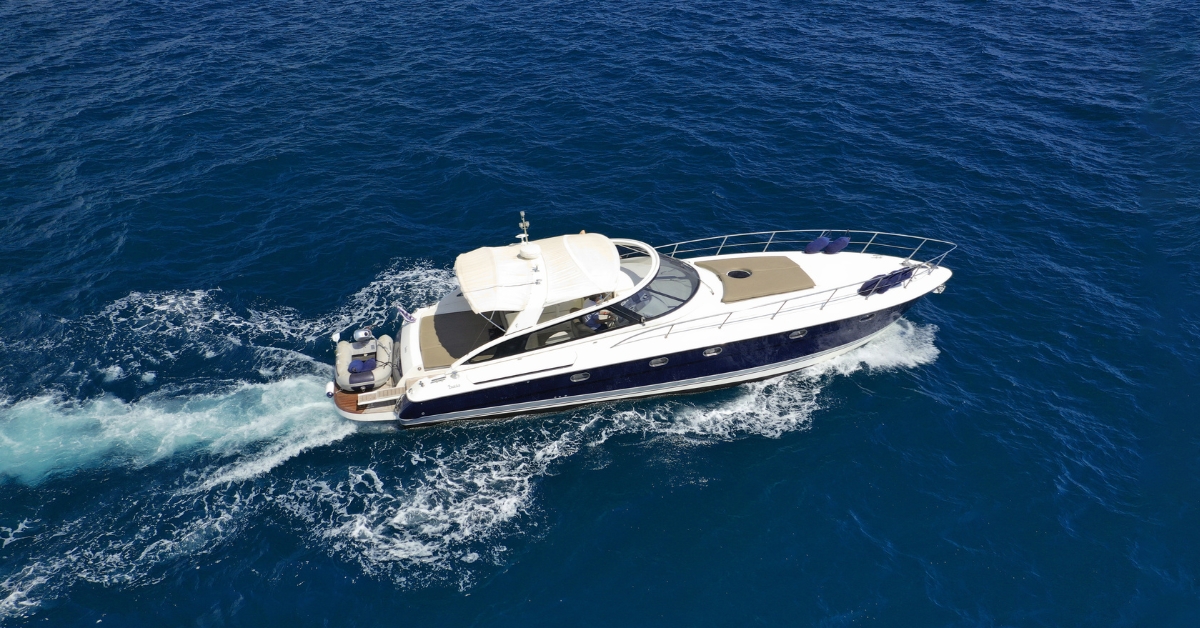
Small Sailboat
Small sailboats are well-suited for individuals seeking a simpler, more environmentally-friendly lifestyle. They have less space and amenities but offer a great sense of adventure and freedom as they rely primarily on wind power.
Trawlers
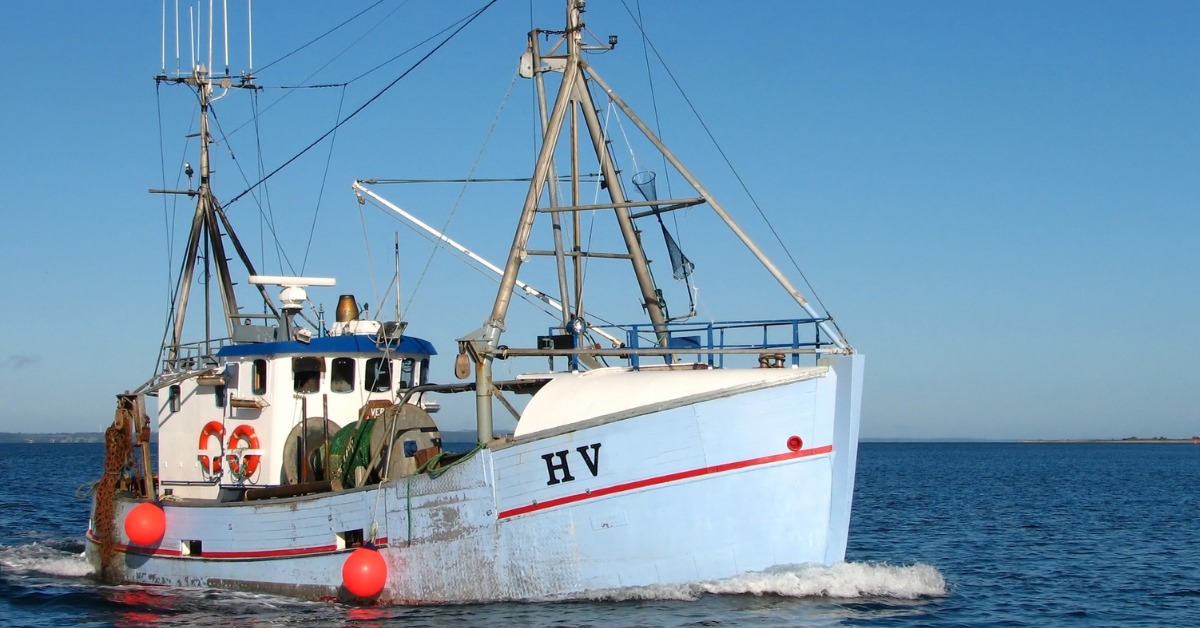
Trawler
Trawlers are a popular choice for those seeking more living space, stability, and fuel efficiency. Equipped with displacement hulls, they boast large cabins, ample storage, and a comfortable ride in various sea conditions.
Tugboats
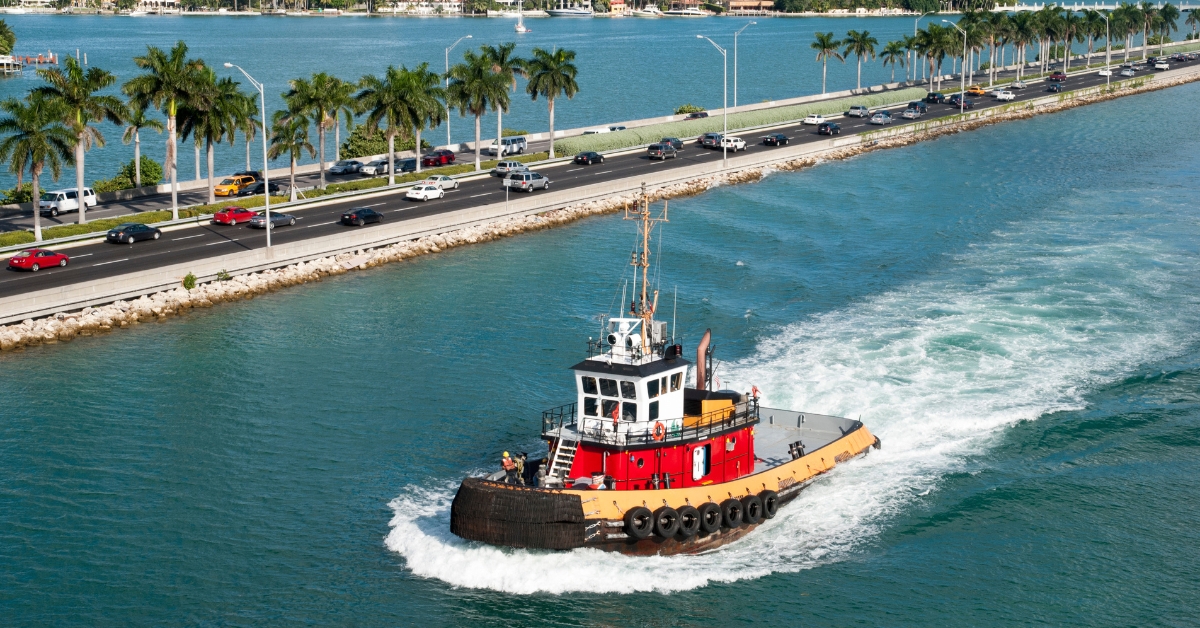
Tugboat
While not as common as sailboats or trawlers, tugboats can be a unique and charming choice for those seeking a sturdy, small boat with character. Originally designed for towing and maneuvering larger vessels, this cheap boat typically has a powerful engine, sizeable living quarters, and a nostalgic aesthetic.
Space Management
When living on a boat, one of the crucial aspects to consider is space management. Given the small spaces available, you need to be efficient when organizing your living space, storage space, and personal space.
Notably, the living space on a boat can be quite small, especially in comparison to traditional land-based homes. One way to maximize a small space is by using multipurpose furniture, such as a sofa bed which can serve as a seating area during the day and a bed at night.
Arranging your boat's interior in a way that is functional and space-saving will not only make your liveaboard experience more comfortable but also help you maintain an organized and clutter-free environment.
Also, respecting and establishing everyone's personal space on board is important to maintain privacy and a sense of harmony, especially when living with others in close quarters.
Boat Equipment and Conveniences
When embarking on the adventure of living on the ocean in a boat, it's essential to equip yourself with the right tools and conveniences that make life aboard enjoyable and efficient.
From navigation equipment and safety gear to onboard amenities and space-saving solutions, this table delves into the must-have boat equipment and conveniences for a comfortable and fulfilling maritime lifestyle.
Sailing and Safety
In this beginner's guide to living on the ocean in a boat, a major focus is on sailing experience and boating safety considerations. As an inspiring sailor, it is essential to go on a sailing trip and learn how to set sail properly.
Sailing Experience and Tips
When embarking on your first sailing trip, it's vital to acquire some sailing experience. Start by taking a training course from a reputable organization like the Royal Yachting Association (RYA) or the Irish Sailing Association (ISA).
These courses will help you familiarize yourself with the basic principles of floating homes, sailing, boat control, and navigation.
- Choose a calm day with light winds for your first sailing experience.
- Always check the weather forecast before setting sail.
- Start living on the smallest boat to gain confidence.
- Try to sail with experienced sailors for more guidance and support.
Boating Safety Considerations
Safety considerations are crucial when living on the ocean in a boat. Here are some crucial boating safety considerations that can help you prepare for any potential risks:
- Personal Flotation Devices (PFDs): Wearing a life jacket or other floatation device is essential in case of an emergency.
- First Aid Kit: Ensure you have a well-stocked first aid kit on board and know how to use it.
- Safety Equipment: Equip your boat with safety gear like a fire extinguisher, flares, a VHF radio, and a life raft.
- Planning: Study charts and predict tides/currents before setting sail.
- Emergency Action Plan: Develop a plan in case of adverse weather conditions or other emergencies, and ensure all crew members are familiar with it.
- Communication: Keep communication lines open within the crew and with relevant authorities.
Regions and Destinations
When considering living on the ocean in a boat, one of the first things to ponder is which region or destination to explore.
Let’s cover some popular and captivating areas perfect for the beginner liveaboard.
Firstly, South East Asia is the cheapest place to live on a boat full-time, with its diverse culture, vibrant marine life, and picturesque islands. The region's popularity among liveaboards has led to a thriving community and abundant resources to support this lifestyle.
The South Pacific is another outstanding area for those new to boat living, as its vast, unspoiled destinations provide ample opportunities to explore, relax, and learn the ins and outs of moving aboard.
Few locations compare to the Virgin Islands when it comes to idyllic settings for living on a boat. This archipelago, comprised of the British and U.S. Virgin Islands, offers a unique combination of dazzling international waters, vibrant coastal culture, and convenient access to essential live-aboard facilities.
Finally, San Diego is a prime spot for beginner liveaboards seeking a coastal location within the United States. This destination offers extensive marina facilities, a picturesque coastline, and mild year-round weather. As a basic fact, it's the perfect base from which to explore the Californian coast and nearby islands.
Daily Life Aboard
On a day-to-day basis, liveaboards follow similar routines to everyday life on land, albeit with some adjustments. Mornings may consist of enjoying coffee while watching the sunrise, listening to weather updates, and planning the day's activities.
Boat maintenance and cleaning are essential tasks that should be carried out regularly to ensure the vessel remains seaworthy, safe, and comfortable. These tasks may include engine checks, scrubbing the hull, maintaining the sails, and making the necessary repairs.
An essential aspect of boat living is staying connected with the liveaboard community. Liveaboards often build strong bonds with their neighbors, who share common interests and face a few problems. They often gather for social events, good food, or casual sunset drinks, offering an enjoyable and supportive environment.
Below is a summary of essential aspects of daily life aboard a boat:




